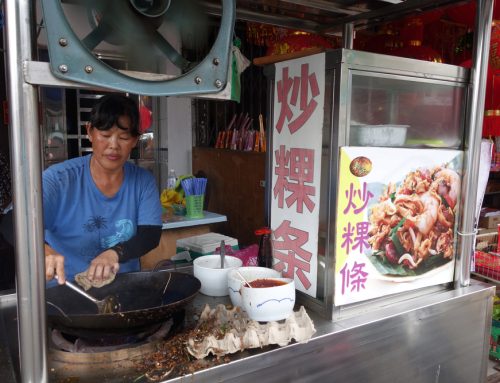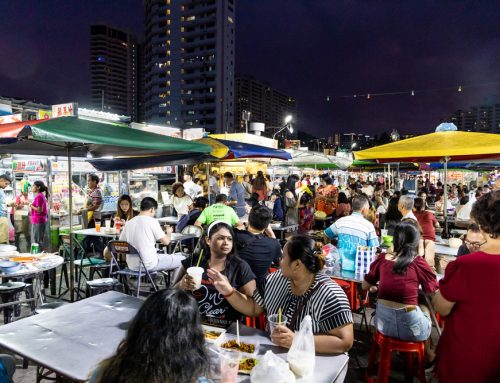Everyone has experienced some degree of emotional pain some time in their life, but with varying degrees. Emotional pain usually comes from experiences during childhood.
Here are some common examples of how emotional pain can be generated as a child.
Did you feel safe to express your feelings?
Did you feel heard?
Were you respected and valued for who you were?
Were your needs (both physical and emotional) met by your primary carer?
If you answer NO to any of the above scenarios, you may potentially build up a subconscious belief that “I am not worthy of love”, “Feelings and emotions are dangerous”, “I am powerless” …
Those unconscious beliefs that as child you created were to protect the child from emotional pain, which is often as painful as physical pain.
Let’s look at a simple example how emotional pain is derived in the first place:
Feelings are dangerous
For example where I come from – Malaysia, a developing country – work can dominate a family. In many families parents worked very hard daily, and by the end of the day they were tired and had not much time to think about their emotions or feelings, let alone a child’s or their children’s feelings.
For a young child, feelings and emotions are important and necessary, For a child to be unable to express their feelings, or have their emotions being considered a waste of time, unacceptable, or being viewed inconsiderate to show feelings, they would potentially develop a belief that expressing feelings or showing emotions is something dangerous and inappropriate.
The lack of expression from parents may also result in children assuming or believing that they are not loved, valued, being heard or their needs being met. They become uncertain or unsure what to feel or how to feel, or even how to express them appropriately.
Cultural
Another reason could be a cultural issue, such as in Asian countries, expressing feelings by telling your child you love them or embracing them physically is very very rare. A common way Asian parents express their love to their children is to express them through food and constantly “worrying” about the children’s well being, whether they are too cold, too hot… (I really would love to hear your version of how your parents expressed love…).
It does not mean there is a lack of love or value for their children; parents really do love their children, but love can be expressed very differently.
The lack of expression can result in the child forming the belief that he or she is unloved, unappreciated, or not good enough… which may cause an unconscious sadness in them.
Societal expectations – conditional love
Another issue could be the expectations (conditional love) by the family and society – in some families, children are expected to behave in a certain manner, “perform” in a certain way, and to conform to societal expectations, i.e. their accomplishment, how they look, how they behave, their status in society, how much money they have etc.
Everything the child does is in accordance to the family and society’s expectations. Under these circumstances, the child may believe that life is a stage: they need to constantly perform to meet the expectations or they would not be loved or judged.
They may also believe that they are never good enough to be loved or valued for who they are, and soon they may lose touch of their core sense and values and what they really want and stand for.
So why it is important that we have this awareness?
Self image – how you feel about yourself
When a child experiences and develops the belief of not being good enough, their needs are unimportant, and feeling disconnected from who they are due to societal expectations, they tend to learn that expressing feelings is dangerous and they learn to stop feeling. Therefore they potentially lose the connections to their own feelings, their values and know what they stand for… literally lose the connections to WHO they are.
Vulnerability
When a child is judged for not meeting the society’s expectations for not being who they are supposed to be, and being reprimanded and out-cast, the child then feels abandoned and sad. He or she may decide that it is safer if they stay strong and never be vulnerable, i.e. never have needs, because they believe that their needs are never going to be met and are not important.
Therefore they will make a vow of never needing or wanting anything in life – that he or she will never be vulnerable so that he or she does not feel the sadness of not having the needs met – in other words, he or she is saying that they will never feel or admit their needs.
So when it comes to connecting with their future spouse or children – they will never know how to truly connect and be intimate with them.
Road to healing
So now you have some idea where subconscious beliefs come from, and how they will affect your thoughts and behaviours.
In the next blog post, I will tell you WHY it is important to acknowledge your childhood unconscious programming, as that has a huge impact on how you interact with your children’s emotional well being.
So what are you feeling right now?
When you feel any emotion arising:
- sit with the emotion
- feel it, and
- name the feeling. Is it sadness? anger?…
When you start to feel and label those emotions, go ahead and write it down: what you are feeling, why you think you are feeling this way…journal down your story… This is your first step to self awareness and the journey of healing your emotional pain.
Have a connected day with your family.







Leave A Comment